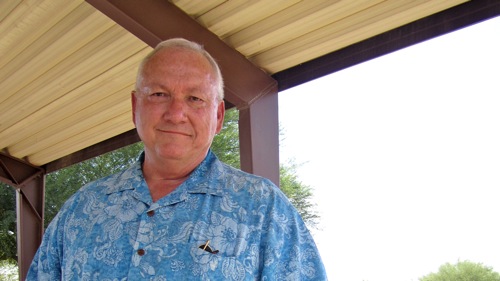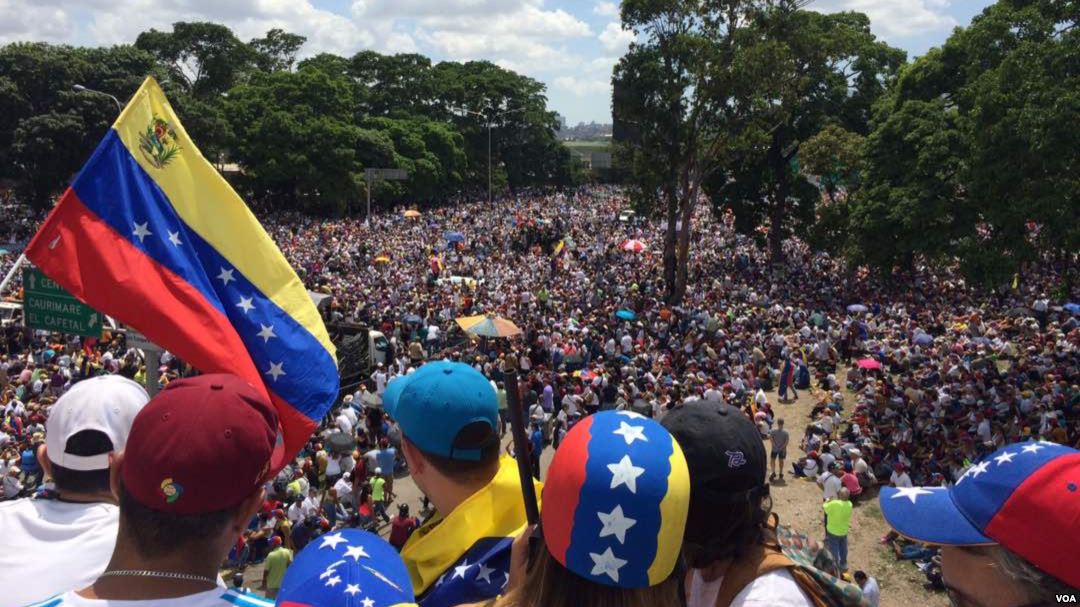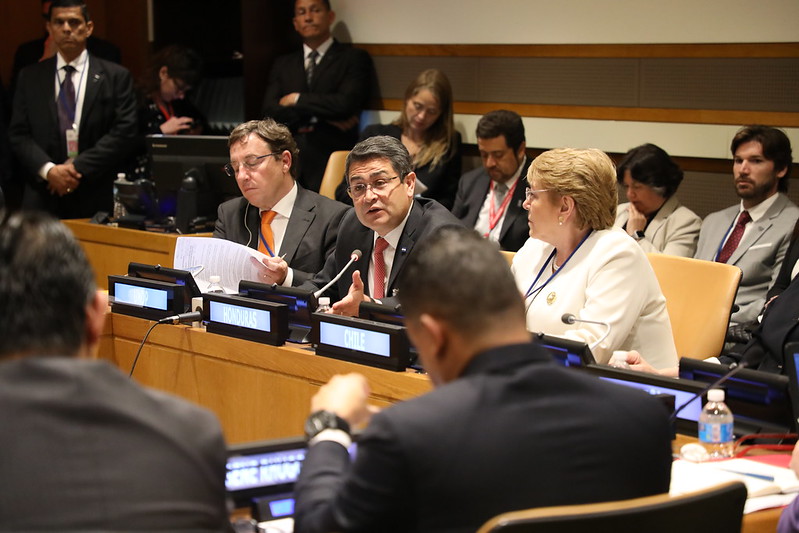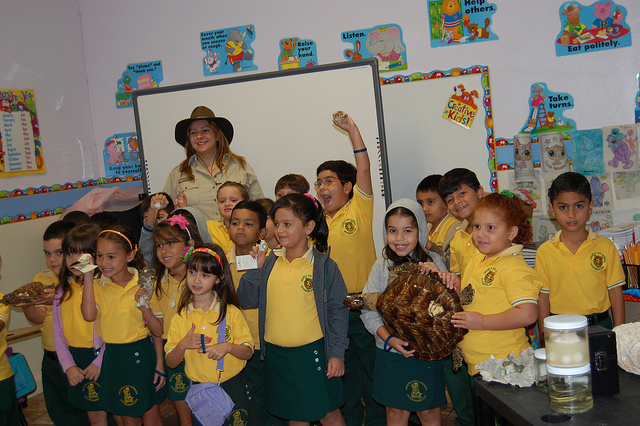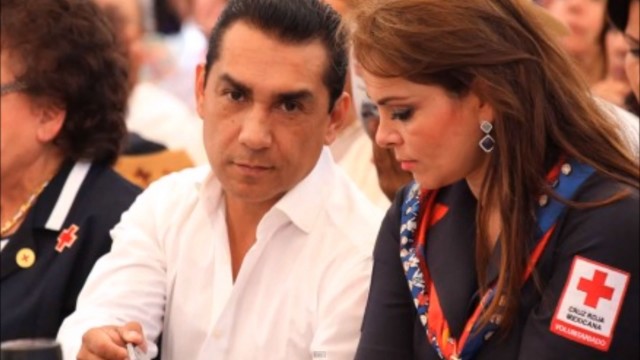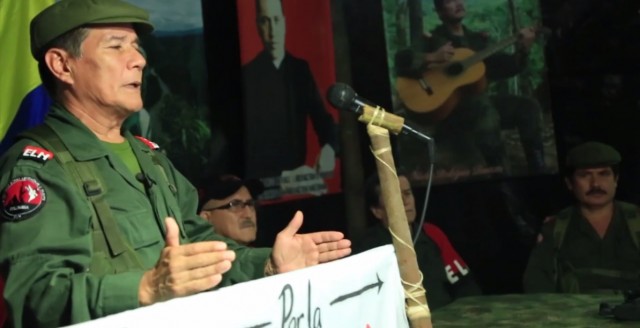Latin America: Week in Review, Mexico, North America, United States
Mexico’s Peña Nieto Meets With Obama Amid Missing Student Crisis
January 7, 2015 By Staff
Top Story — Mexican President Enrique Peña Nieto visited the White House on Tuesday, where he and U.S. President Barack Obama praised one another’s recent efforts on immigration reform while skirting the subject of the 43 teacher-trainee students missing from Mexico’s Guerrero state since September. Peña Nieto’s administration is under pressure over its handling of the student disappearances, and his visit was met with vociferous protests outside the White House.
Obama was cautious to couch the disappearances that have rattled Mexico over the last several months in a broader security context.
“And obviously we’ve been following here in the United States some of the tragic events surrounding the students whose lives were lost,” Obama said. “Our commitment is to be a friend and supporter of Mexico in its efforts to eliminate the scourge of violence and the drug cartels that are responsible for so much tragedy inside of Mexico.”
Obama did not go into detail about the efficacy of Mexico’s ongoing investigation into the disappearances, despite pressure from human rights groups. When asked for comment regarding the reliability of the investigation, White House press secretary Josh Earnest stressed that a number of arrests have been made in the ongoing case.
In addition to security-related discussions, Peña Nieto lauded Obama’s executive action on immigration, calling it an “audacious decision” and an “act of justice.” Obama, in turn, thanked Peña Nieto for Mexico’s commitment to cracking down on illegal border crossings. Peña Nieto also praised Obama’s decision to normalize diplomatic ties with Cuba as Mexico also seeks to improve relations with the Caribbean nation.
Peña Nieto’s approval ratings fell to a historic 18-year low in December, due to his administration’s widely criticized response to the student massacre and to a conflict-of-interest scandal over a property owned by the first lady. Ongoing news related to the massacre since September has stunned Mexico, and has derailed Peña Nieto’s efforts to rebrand Mexico as a safe, modern country.
Headlines from the Western Hemisphere
North America
- Authorities in the Mexican state of Veracruz detained 36 police officers from the town of Medellín de Bravo on Tuesday in connection with the disappearance last week of journalist Moisés Sánchez Cerezo, who publishes a local weekly that highlights government corruption.
- Also on Tuesday, nine civilians died in clashes between federal security forces and armed vigilantes in the restive Michoacán state. No soldiers or police officers were killed in the violence, raising concerns of a massacre similar to one allegedly committed by army troops in June.
- On the topic of Michoacán, a federal security official on Tuesday said eyewitnesses have reported that the Knights Templar drug cartel has forced recruits to eat human hearts in order to prove their loyalty.
Caribbean
- The wife of a Cuban intelligence agent freed as part of a historic deal with the U.S. gave birth to a baby girl on Tuesday, the culmination of a pregnancy made possible by artificial insemination facilitated by the U.S. while talks were ongoing.
- Neither the U.S nor Cuba have revealed the names of some 53 political prisoners released by Cuba as part of that deal, fueling speculation about their identities, although a U.S. spokesperson said all the prisoners are expected to be released.
- The U.S. Coast Guard reports that its rescues of so-called “boat people” fleeing Cuba have more than doubled since December 2013, much of them after the two countries agreed to work toward normalizing relations.
Central America
- More than 150 former gang members have graduated from a job placement and amnesty program in Panama, but officials warn that any return to a life of crime will earn the graduates the “mano dura,” or “iron fist,” treatment.
- The Panama Canal Authority may be forced to pay nearly $233 million to the Spanish- and Italian-led consortium responsible for the waterway’s expansion to cover cost overruns following a ruling by an independent mediator.
- The U.S. Embassy in Nicaragua on Tuesday voiced its concerns about the Chinese financiers of the Central American country’s $50 billion canal project, whose ties to the Chinese government have raised suspicion.
Andes
- While shipping issues elsewhere have caused similar problems, Venezuelans think economic chaos in their own country is to blame for a potato shortage that has left more than 100 McDonald’s franchises serving alternatives like arepa flatbread and fried yuca.
- China will loan Ecuador $5.3 billion in order to make up for the Andean country’s reduced earnings from the low price of oil, a sector that has seen heavy Chinese investment.
Southern Cone
- Environmentalists have voiced concern over the appointment earlier this month of a fervent climate-change skeptic as Brazil’s minister of science.
- To spur investor confidence in an ailing economy, Brazil’s government will slow down its spending in sectors like infrastructure and technology, an official said Tuesday.
- Paraguayan police working near the Brazilian border routinely accept bribes from marijuana smugglers, the latest evidence of widespread corruption related to the drug trade revealed by newspaper ABC Color, according to a summary by InSight Crime.
- Rights groups in Brazil have protested a statement made by the new police chief for São Paulo state, who said he supported lowering the age at which teenagers could be tried as adults for serious offenses, although he added that such crimes are relatively uncommon.
Image: The White House, public domain
